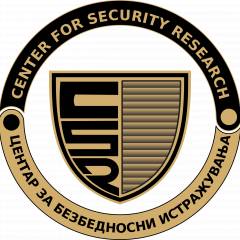
By participating in free and fair elections, citizens cast their votes expecting the officials they elect to represent their interests in the best possible way. The voters’ choice grants legitimacy to the elected representatives and the parties they are part of. This legitimacy allows politicians to enact and amend legislation in the way they find most appropriate and suitable – usually along the lines of a published policy platform or manifesto. While the competition for political power is an essential element in ensuring the democratic diversity of interests, the election process can become exposed to malicious attempts to influence the result, including attempts from foreign powers to try and manipulate voters with false messaging as well as outright interference in the electoral count.
This reason alone should be enough to understand that protecting the integrity of elections is therefore a clear priority; both for individual states, but also for international organisations, such as the European Union. The threat has clearly been growing in the past couple of years, with a series of fairly blatant attempts to manipulate electoral processes in at least 18 countries, including the USA, Netherlands and the Ukraine.
Today’s incredibly complex and dynamic environment has created unprecedented ways of influencing voters’ choices and the results of elections. This requires national administrations and relevant institutions to assess the potential risks and challenges facing democratic processes in a holistic way, and to consider the most suitable approach to ensure the relevant resilience levels.
The diversity of views, preferences and priorities of different groups in society make up the backbone of a modern democracy but can make it difficult to distinguish and spot undemocratic or artificially injected processes orchestrated by (foreign) actors outside the legitimate space of debate and citizens’ rights.
The concept of foreign malicious influence attempts – deliberately designed, tailored and targeted to influence the decisions of voters – are very difficult to distinguish from the legitimate processes in the political arena. Every political party and candidate will try to influence the actions of voters, hoping to gain more votes for themselves. The main difference, and also the most difficult to prove, is whether attempts to influence the elections have malicious foreign elements.
On the other hand, protecting elections is a multi-layer and multi-stakeholder process that necessitates the development of new coordination mechanisms, new methods and tools to monitor and assess the election, improved routines for risk and vulnerability analysis and a framework to assess and respond to election interference.
Any malicious actor needs to be understood from the perspective of its will and ability to influence an election. For that reason, the methods of the malicious actor should be understood based on an assessment of its intention and capacity, paired with potential opportunities to act. Deliberate attempts to manipulate elections, electoral infrastructure and campaign information systems are becoming a significant threat to our democracies, a threat which need to be actively combated using all available means.
As technological progress continues apace new developments, that have little similarity to anything else in democracy’s long history, will continue to emerge. Whether those developments bolster democracy—or whether they undermine it—will be decided by how well today’s policymakers and civil society cooperate to produce principles and standards that withstand the test of time.
This article was originally published for Conservatives Global.


